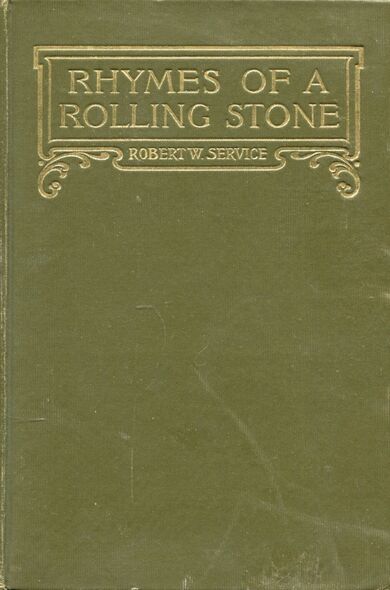The Death of Marie Toro
We’re taking Marie Toro to her home in Père—La—Chaise;
We’re taking Marie Toro to her last resting—place.
Behold! her hearse is hung with wreaths till everything is hid
Except the blossoms heaping high upon her coffin lid.
A week ago she roamed the street, a draggle and a slut,
A by—word of the Boulevard and everybody’s butt;
A week ago she haunted us, we heard her whining cry,
We brushed aside the broken blooms she pestered us to buy;
A week ago she had not where to rest her weary head . . .
But now, oh, follow, follow on, for Marie Toro’s dead.
Oh Marie, she was once a queen —ah yes, a queen of queens.
High—throned above the Carnival she held her splendid sway.
For four—and—twenty crashing hours she knew what glory means,
The cheers of half a million throats, the délire of a day.
Yet she was only one of us, a little sewing—girl,
Though far the loveliest and best of all our laughing band;
Then Fortune beckoned; off she danced, amid the dizzy whirl,
And we who once might kiss her cheek were proud to kiss her hand.
For swiftly as a star she soared; she had her every wish;
We saw her roped with pearls of price, with princes at her call;
And yet, and yet I think her dreams were of the old Boul’ Mich’,
And yet I’m sure within her heart she loved us best of all.
For one night in the Purple Pig, upon the rue Saint—Jacques,
We laughed and quaffed . . . a limousine came swishing to the door;
Then Raymond Jolicoeur cried out: “It’s Queen Marie come back,
In satin clad to make us glad, and witch our hearts once more.”
But no, her face was strangely sad, and at the evening’s end:
“Dear lads,” she said; “I love you all, and when I’m far away,
Remember, oh, remember, little Marie is your friend,
And though the world may lie between, I’m coming back some day.”
And so she went, and many a boy who’s fought his way to Fame,
Can look back on the struggle of his garret days and bless
The loyal heart, the tender hand, the Providence that came
To him and all in hour of need, in sickness and distress.
Time passed away. She won their hearts in London, Moscow, Rome;
They worshiped her in Argentine, adored her in Brazil;
We smoked our pipes and wondered when she might be coming home,
And then we learned the luck had turned, the things were going ill.
Her health had failed, her beauty paled, her lovers fled away;
And some one saw her in Peru, a common drab at last.
So years went by, and faces changed; our beards were sadly gray,
And Marie Toro’s name became an echo of the past.
You know that old and withered man, that derelict of art,
Who for a paltry franc will make a crayon sketch of you?
In slouching hat and shabby cloak he looks and is the part,
A sodden old Bohemian, without a single sou.
A boon companion of the days of Rimbaud and Verlaine,
He broods and broods, and chews the cud of bitter souvenirs;
Beneath his mop of grizzled hair his cheeks are gouged with pain,
The saffron sockets of his eyes are hollowed out with tears.
Well, one night in the D’Harcourt’s din I saw him in his place,
When suddenly the door was swung, a woman halted there;
A woman cowering like a dog, with white and haggard face,
A broken creature, bent of spine, a daughter of Despair.
She looked and looked, as to her breast she held some withered bloom;
“Too late! Too late! . . . they all are dead and gone,” I heard her say.
And once again her weary eyes went round and round the room;
“Not one of all I used to know . . .” she turned to go away . . .
But quick I saw the old man start: “Ah no!” he cried, “not all.
Oh Marie Toro, queen of queens, don’t you remember Paul?”
“Oh Marie, Marie Toro, in my garret next the sky,
Where many a day and night I’ve crouched with not a crust to eat,
A picture hangs upon the wall a fortune couldn’t buy,
A portrait of a girl whose face is pure and angel—sweet.”
Sadly the woman looked at him: “Alas! it’s true,” she said;
“That little maid, I knew her once. It’s long ago —she’s dead.”
He went to her; he laid his hand upon her wasted arm:
“Oh, Marie Toro, come with me, though poor and sick am I.
For old times’ sake I cannot bear to see you come to harm;
Ah! there are memories, God knows, that never, never die. . . .”
“Too late!” she sighed; “I’ve lived my life of splendor and of shame;
I’ve been adored by men of power, I’ve touched the highest height;
I’ve squandered gold like heaps of dirt —oh, I have played the game;
I’ve had my place within the sun . . . and now I face the night.
Look! look! you see I’m lost to hope; I live no matter how . . .
To drink and drink and so forget . . . that’s all I care for now.”
And so she went her heedless way, and all our help was vain.
She trailed along with tattered shawl and mud—corroded skirt;
She gnawed a crust and slept beneath the bridges of the Seine,
A garbage thing, a composite of alcohol and dirt.
The students learned her story and the cafes knew her well,
The Pascal and the Panthéon, the Sufflot and Vachette;
She shuffled round the tables with the flowers she tried to sell,
A living mask of misery that no one will forget.
And then last week I missed her, and they found her in the street
One morning early, huddled down, for it was freezing cold;
But when they raised her ragged shawl her face was still and sweet;
Some bits of broken bloom were clutched within her icy hold.
That’s all. . . . Ah yes, they say that saw: her blue, wide—open eyes
Were beautiful with joy again, with radiant surprise. . . .
A week ago she begged for bread; we’ve bought for her a stone,
And a peaceful place in Père—La—Chaise where she’ll be well alone.
She cost a king his crown, they say; oh, wouldn’t she be proud
If she could see the wreaths to—day, the coaches and the crowd!
So follow, follow, follow on with slow and sober tread,
For Marie Toro, gutter waif and queen of queens, is dead.





